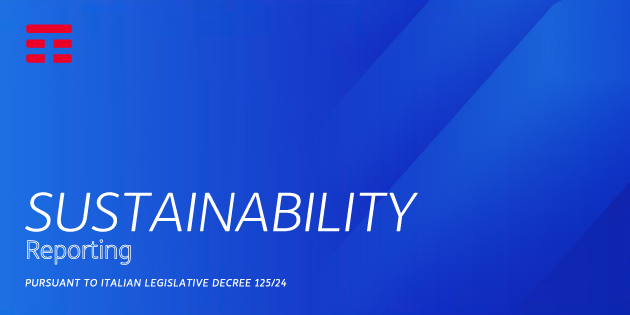With an estimated value of 1.9 billion euros in 2023, growing to 6.6 billion by 2027, the Artificial Intelligence market is developing strongly in Italy too, supported mainly by investments in the finance, telecommunications and IT, manufacturing and retail sectors, and with further growth potential in the healthcare, government and agriculture sectors. These are some of the findings of the ‘Artificial Intelligence in Italy - Market, Innovation, Developments’ report drawn up by Centro Studi TIM in collaboration with the Intesa Sanpaolo Innovation Center and presented today in Rome during the event held to reward the best innovative solutions that won the 'TIM AI Challenge'.
In his opening remarks, Elio Schiavo, TIM's Chief Enterprise and Innovative Solutions Officer, said: “Initiatives like this challenge are intended to start a virtuous cycle to facilitate encounters between different companies and generations and make the most of the new experiences and ideas of people entering an increasingly fast market in which Artificial Intelligence is a very strong accelerator of the digital transformation of companies and public administration. In this context, a company like TIM, whose ability to bring innovation to the country in a responsible manner is ingrained in its history and DNA, has set itself the objective of extracting the best from a disruptive technology such as AI, while paying the utmost attention to the issues of privacy, security and social impact in what we do. With TIM Enterprise we make resources and skills available with the aim of growing the entire innovation chain”.
The study presented by Laura Li Puma, Head of Artificial Intelligence Lab Intesa Sanpaolo Innovation Center, shows that the AI market will grow by 37% per year to approximately 6.6 billion euros in Italy and over 407 billion euros globally by 2027.
Companies that use AI the most are large ones: around one large company in four had activated at least one AI solution by 2021, while the average drops to around 6% among companies with more than 10 employees, according to the Eurostat data. More recent estimates attest to a growth in the use of AI, with 60-70% of large companies already using or experimenting with this technology.
The study also highlights how the use of AI could speed up economic development, increasing productivity and freeing up resources to be applied in areas where greater value is generated. In fact, according to estimates by Centro Studi TIM, from 2022 to 2026 Artificial Intelligence will offer a cumulative contribution to Italy's GDP of up to 195 billion euros, corresponding to an average annual amount of almost 40 billion euros, which equates to approximately 2% of GDP.
Furthermore, the industrial scale application of artificial intelligence - particularly in the energy, agriculture, transport and water sectors - will contribute to reducing overall CO2 equivalent emissions in Italy by approximately 116 million tonnes between 2020 and 2030, with an average annual reduction of approximately 2.6% of total emissions, reaching up to 5% less by 2030.
The spread of Artificial Intelligence is also leading to an ever-increasing use of Cloud Computing services. Considering that between 7 and 10% of Cloud spending now stems from the use of machine learning, Centro Studi TIM has calculated that in 2027 the dissemination of this technology alone will generate additional spending in Public Cloud services in Italy of over 870 million euros a year.
The meeting was also attended by Giulia Sapino, Marketing Lead of Prestofresco, a supermarket chain with around 100 stores located in Northern Italy, which uses TIM's artificial intelligence to access company information in real time and make data-based decisions, with positive impacts on business efficiency and performance. Giordana Castelli, Urban Intelligence Project Coordinator of the CNR (Italian National Research Council) also took part in the event.
The ‘TIM AI Challenge’ was created with the aim of further enriching the portfolio of AI solutions that TIM Enterprise makes available to companies and public administration. The scouting initiative is part of the Open Innovation programme, and specifically the TIM Growth Platform, the new innovation model that focuses on industrial collaboration with high-potential companies in order to speed up their growth. The challenge, which was launched together with some of the main players in this field, involved over 160 startups, scaleups and innovative companies called to present AI-based solutions to accelerate digital transformation. Around 80% of the proposals evaluated are Italian, with strong interest also from foreign companies (Spanish, French, American and British primarily).
In particular, TIM rewarded two companies: Digitiamo for the 'Purchase Assistant’ solution, a digital assistant for personalised purchasing that combines recommendation systems and generative AI to support the end consumer before, during and after the sale; and UK-based causaLens for the – decisionOS – platform, which enables businesses to use their data to make better business decisions by leveraging Causal AI, the next frontier of AI innovation. The winners will be offered a technological and commercial partnership with TIM Enterprise.
Additional prizes awarded were:
· EIT Digital award to MYWAI for its AIoT solution combining Edge & Generative AI to make machinery smart and optimise predictive maintenance, quality control and productivity;
· Intesa Sanpaolo Innovation Center award to WordLift for the AI-based SEO (Search Engine Optimization) platform that makes it possible to improve the position of websites among search engine results;
· Startup Thinking Observatory of Politecnico di Milano award to Athics for the focus on social sustainability of the conversational artificial intelligence solution that allows virtual assistants to be created that adapt communication to the user’s psychometric profile;
· ImpreSapiens - Sapienza University of Rome award to TrafficLab for WeTraffic, a platform for the real-time management, forecasting and monitoring of traffic and parking.
The full 'Artificial Intelligence in Italy - Market, Innovation, Developments' report can be viewed by clicking the following link.
Rome, 5 December 2023



